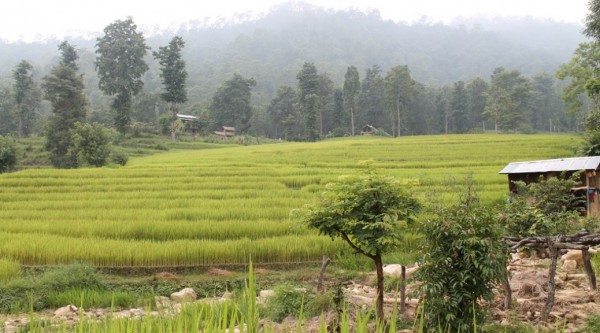Land use mapping to be completed in five years

COMPLETION OF PROJECT TO HELP RESOLVE ISSUES RELATED TO LAND CONFLICTS
18 July 2015, Land use mapping in all districts of the country is expected to be completed in five years, according to a government official.
Nagendra Jha, Joint Secretary at the Ministry of Land Reforms and Management, said completion of land use mapping will help resolve issues related to land conflicts.
We have not been able to do much in land use mapping due to lack of clear land use policy, said Jha at a seminar on ‘Issues and Challenges on Land Policies in New Context’ organised by the UNDP in collaboration with UN-Habitat and International Organisation of Migration in the capital yesterday.
“It is of utmost importance to develop land use mapping to allocate land for house construction, settlements, industry establishment and squatter relocations in the aftermath of the April 25 earthquake. In order to develop land use mapping, technical, political, social and scientific approaches should be used by all the national and international stakeholders,” said Jha, adding that the government is not resourceful enough for the relocation of squatters and displaced communities in the time of crisis, disasters and conflicts.
Public properties can’’t be used for relocation and re-settlement of the displaced and squatters.
Thomas Sinkovits, Chief of Mission, IoM, said the IoM would work together with the United Nations Development Programme and United Nations Human Settlements Programme to resolve land issues and challenges in the aftermath of quake by proposing international land practices to the government of Nepal.
He added that land use mapping and land policy drafts should be implemented for the development of planned settlements — both in rural and urban areas. “The settlements should be sustainable, safe and resilient for the strong livelihood of the society during the times of conflict and disaster,” he said. “Land use mapping would ensure the guidelines for designing holistic and scientific human settlements,” he added.
Janak Raj Joshi, Under Secretary, MoLRM, presented the issues and challenges of land policies in the new context post the earthquake.
According to Joshi, different perspectives of stakeholders, acceptable land policies, squatter relocation, informal rights, relocation and resettlement, reconstruction and rebuilding, customs and tax, land trading, land administration and good governance, land debates and skill development are the challenges and issues to be discussed and resolved by all the concerned stakeholders to implement land policy for land use, land improvement, land mapping and land management.
Universities in Nepal lack courses on land administration and good governance, resulting in lack of skilled and professional manpower. “The universities should design academic programmes for the land administration and good governance so that human resource having the knowledge about theoretical land administration principles will be produced,” he said, adding that land administration and good governance department in the ministry level is occupied with staff and officials who lack formal academic qualifications in the very subject.
Padma Sundar Joshi, Habitat Programme Manager, UN-Habitat, highlighted that understanding the challenges and issues for the land use policy before and after the quake would assist in the implementation of policy for the effective land use.
Source: Himalayan Times





